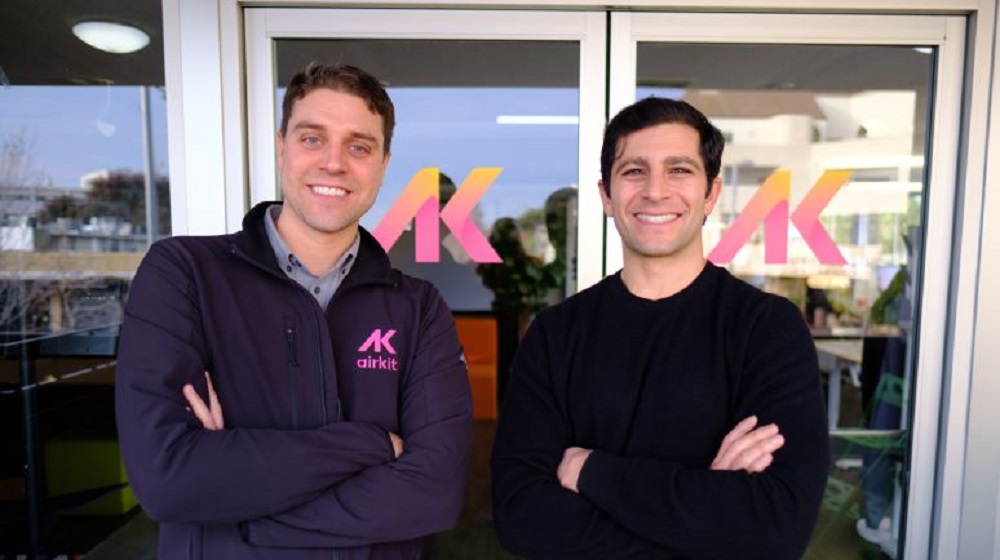Salesforce is acquiring Airkit.ai, an AI startup that helps ecommerce businesses build GPT-4-powered AI agents to answer different types of customer questions, the company announced in a statement today. The terms of the deal were not disclosed. The acquisition comes almost right after the announcement of Einstein Copilot, a conversational AI assistant for all Salesforce apps.
The acquisition also comes just a month after Airkit.ai’s pivot to become a GPT-4 powered customer service solution. It now builds ecommerce AI agents that can integrate with popular ecommerce and helpdesk platforms “in minutes” and resolve customer questions on things like order status updates, return and exchange support, order issue management, product information, and technical support automatically. This empowers service representatives to focus on higher-impact work.
“Serving customers 24/7, 365 days a year across any channel (web, mobile, voice, and email), Airkit.ai eCommerce ensures a persistent, seamless, and delightful customer experience – every time,” notes the company’s website.
The AI agents, the website adds, communicate directly with ecommerce platforms and business automation tools. This allows them to receive, understand and take action on customer questions quickly and effectively.

As part of its pivot, the company also rebranded to Airkit.ai. It was previously known as Airkit.
Founded in 2018 by Adam Evans and Stephen Ehikian, Airkit originally started as a ‘low-code’ platform to enable businesses to build “hyper-personalized, end-to-end customer journeys” powered by their existing systems.
“With Airkit, business users or developers can assemble prebuilt templates, data objects and integrations into powerful customer journeys in a matter of days versus months across phone, SMS, web, chat and other channels; boosting both customer engagement and employee productivity,” the company stated in its launch announcement in 2020, when it also raised $28 million from Accel, Emergence Capital, and Salesforce’s CVC arm, Salesforce Ventures. It had raised a total of $68 million before the acquisition.
Adam Evans, the co-founder and CTO of Airkit.ai, had previously co-founded RelateIQ, a big data startup that automated aspects of the sales process through large-scale data-mining technologies for automating relationship tracking in CRMs. RelateIQ was also acquired by Salesforce in 2014 for $390 million, and is now known as Salesforce IQ. Airkit.ai’s co-founder and CEO Stephen Ehikian was previously the COO/CFO at RelateIQ. So this is their second exit to Salesforce.
Once the acquisition closes, Airkit.ai will become part of Salesforce Service Cloud and would continue to be led by Adam. The addition of Airkit.ai, the company said, will help Salesforce’s Service, Sales, Marketing, and Commerce teams move faster into the future of customer engagement in the era of AI.
Commenting on the acquisition, Adam stated, “In the world of Generative AI, it’s clear we need new types of experiences that provide opportunities to transform the engagement experience. At Airkit.ai, we’ve been doing this since our inception, and view Salesforce, the customer company, as a perfect fit for Airkit.ai, the experience company.”
Bill Patterson, EVP & General Manager of C360 Applications at Salesforce, said, “The future of customer engagement will be powered by a new set of AI-driven customer experiences. Adam and team have a strong understanding of the Customer 360 Platform and are some of the best technologists we have worked with in helping Salesforce customers connect with their own customers in a whole new way. We are excited to bring the Airkit.ai team back to Salesforce where they have a strong track record of innovation and a focus on customer success.”
Salesforce has been making significant investments in generative AI, with stakes in multiple of the world’s highest-valued AI startups, so this acquisition doesn’t come as a surprise. Additionally, the founders had a strong preexisting relationship with the company, which likely facilitated the process even further.






